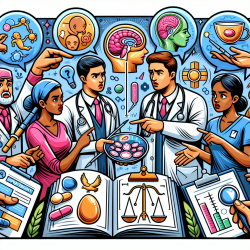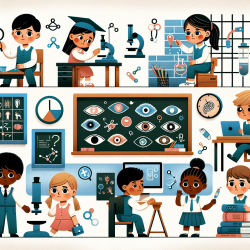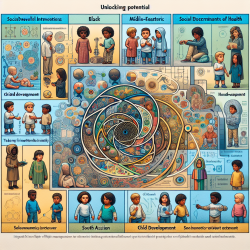Introduction
In the rapidly evolving world of assisted reproductive technology (ART), the use of egg donor agencies has become increasingly prevalent. However, a recent study titled "Buying and selling human eggs: infertility providers’ ethical and other concerns regarding egg donor agencies" reveals critical ethical and policy questions that practitioners must consider. This blog will explore these findings and provide actionable insights for practitioners to enhance their skills and ensure ethical compliance.
Understanding the Ethical Concerns
The study highlights significant ethical concerns surrounding egg donor agencies, including:
- Informed Consent: Many agencies fail to provide adequate informed consent to donors, potentially leading to unanticipated stress when donors discover medical issues during the process.
- Potential Harms: Donors may face physical and psychological risks, yet agencies often do not offer follow-up care or counseling.
- Justice and Eugenics: The selection and marketing of donor traits raise concerns about eugenics and the commodification of human eggs.
- Confidentiality Risks: The dissemination of donors' personal data poses potential threats to their privacy.
Implications for Practitioners
Practitioners play a pivotal role in navigating these ethical challenges. Here are some strategies to consider:
- Enhance Screening Processes: Conduct thorough medical and psychological screenings of potential donors to ensure they understand the risks and implications of egg donation.
- Improve Informed Consent: Provide comprehensive information about the risks and benefits of egg donation, including the possibility of discovering genetic mutations or medical issues.
- Advocate for Stronger Guidelines: Support the development of stronger professional guidelines or governmental regulations to ensure higher standards for egg donor agencies.
- Educate Patients and Donors: Increase awareness among patients and potential donors about the ethical considerations and risks involved in egg donation.
Encouraging Further Research
While this study provides valuable insights, further research is needed to explore the interactions between ART providers and egg donor agencies. Practitioners are encouraged to engage in ongoing research to better understand these dynamics and contribute to the development of ethical guidelines.
Conclusion
The findings from this study underscore the need for heightened ethical standards and improved practices in the use of egg donor agencies. By implementing the strategies outlined above, practitioners can enhance their skills and ensure that they are providing ethical and informed care to their patients.
To read the original research paper, please follow this link: Buying and selling human eggs: infertility providers’ ethical and other concerns regarding egg donor agencies.










